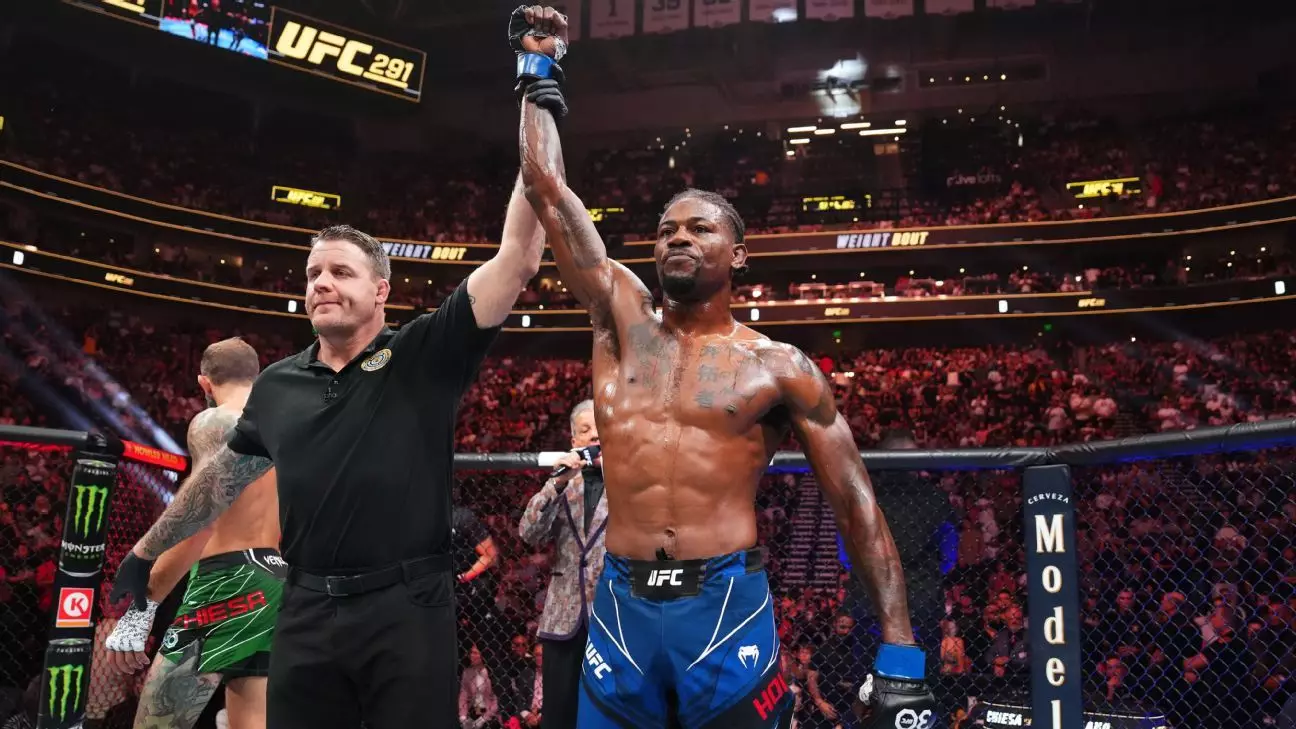In the vibrant and often tumultuous realm of the Ultimate Fighting Championship (UFC), fighters typically aspire to hold a championship belt, which signifies the pinnacle of success in mixed martial arts (MMA). However, Kevin Holland’s approach is refreshingly unconventional. As he prepares for his 24th clash in the UFC against Reinier de Ridder at UFC 311, Holland has made it abundantly clear that he is not motivated by titles. Instead, his primary ambition is to etch his name in the history books through the sheer volume of fights he can accumulate throughout his career.
Holland’s relentless fighting schedule, particularly since he debuted in 2018, underscores his distinctive objectives. With an impressive five victories in 2020 alone, he has shown remarkable consistency and durability, competing at a frequency that many fighters would find daunting. Rather than focus on the championship gold that eludes many, he views each fight as a stepping stone toward breaking the all-time record for the most fights in UFC history, currently held by Jim Miller.
What sets Holland apart from his contemporaries is his candid perspective on the political landscape of championship fighting. In a sport characterized by the complexities of title contention, including rigorous rankings and potential promotional obligations, Holland seems unfazed. He openly acknowledges that becoming a world champion might significantly alter his fighting frequency—something he is not willing to sacrifice.
“I don’t fight for world titles; I fight for my financial lifestyle,” he stated. This practical mindset not only illuminates his views on fighting for money over prestige but also challenges the conventional wisdom held by fighters about the correlation between championship status and financial success. Holland’s insights reveal that in his view, the monetary rewards for fighting champions do not substantially exceed those earned in non-title bouts when factoring in the reduced frequency of competition that typically accompanies a championship chase.
At only 32 years old, Holland is at an advantageous midpoint in his career, with potential longevity in the sport on his side. He has vocalized ambitions to compete up to seven times within a single year, a feat that would see him surpass the benchmarks set by other UFC greats. Should he maintain his current pace, joining the ranks of fighters like Jim Miller, who remains active at 41, could indeed become a reality for Holland.
With an eye on injury-free performances and a desire for rapid turnarounds post-fights, Holland exemplifies a unique blend of ambition and pragmatism. His aspirations are not merely about winning; they encapsulate a broader view of legacy in the sport and the ongoing quest for personal fulfillment through competition.
In essence, Kevin Holland has chosen a path less traveled within the UFC landscape. His decision to prioritize the quantity of fights over the quest for a title sheds light on a broader narrative within the sport—one where individual motivations can redefine what it means to be successful in the octagon. As UFC 311 approaches, Holland’s journey will not only be a test of skill and endurance but also a reinforcement of the idea that true fulfillment in combat sports can take many forms beyond belts and accolades.


Leave a Reply